Sinn Fein Urges EU To Back United Ireland Bid After Poll Surge
Sinn Fein called on the European Union on Tuesday to back its bid for a united Ireland after a surge in support saw it become the second largest party in parliament at weekend elections.
The result has shaken up the political landscape in the EU member state, with Sinn Fein -- once shunned because of its links to IRA paramilitaries -- also the second biggest party across the border in British-ruled Northern Ireland.
When counting from Saturday's poll finished in the early hours of Tuesday morning, the nationalist left-wing Sinn Fein had secured 37 of the 160 seats in the Dail, Ireland's lower house of parliament.
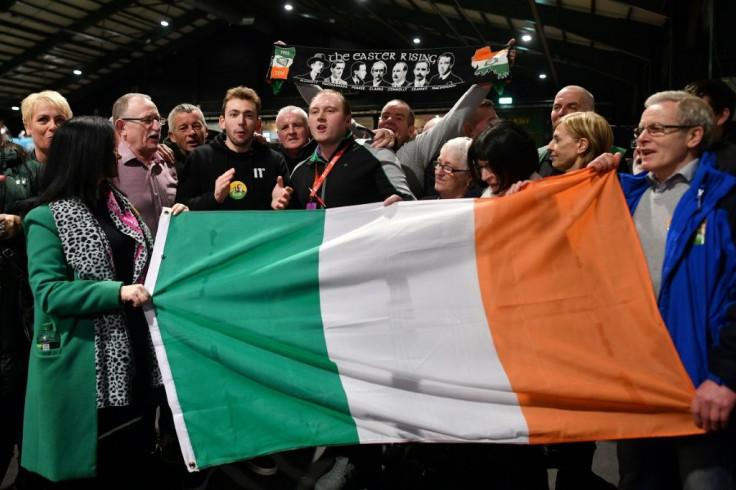
Centre-right party Fianna Fail was only one seat ahead with 38 while Prime Minister Leo Varadkar's Fine Gael took 35 -- a result likely to topple the premier from office.
If a new government is to be formed when the Dail reconvenes on February 20, it must contain multiple parties. Talks have already begun to thrash out a coalition.
Sinn Fein wants a central role in power after winning 24.5 percent of first preferences in Ireland's single transferable vote system -- the largest of any party.
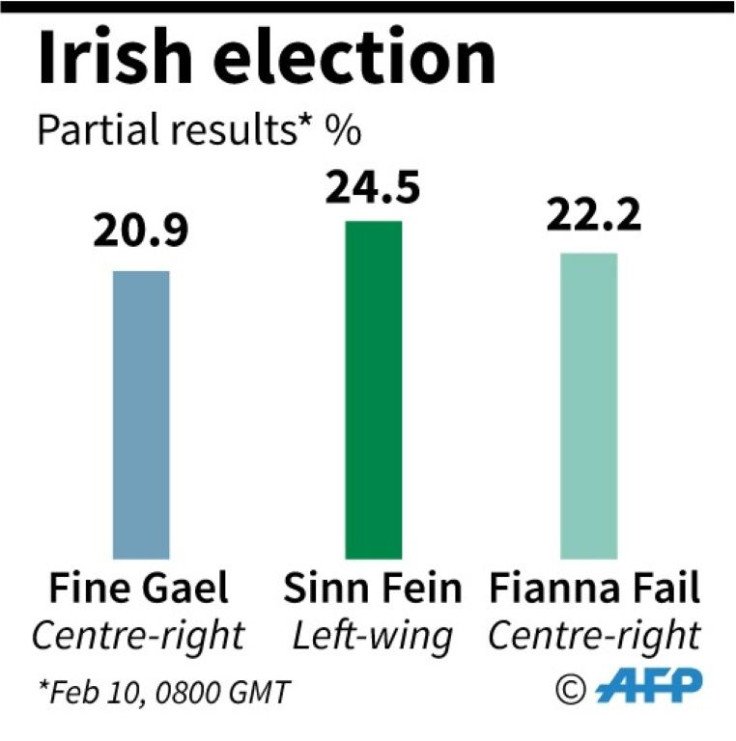
Its leader Mary Lou McDonald has already talked to smaller left-wing parties to try to determine whether it is possible to form a government without the two main centre-right parties.
"I may well be the next taoiseach (prime minister)," she said on a walkabout in Dublin on Monday.
"Sinn Fein won the election, we won the popular vote... I'm very clear that people who came out and voted for Sinn Fein have voted for Sinn Fein to be in government."
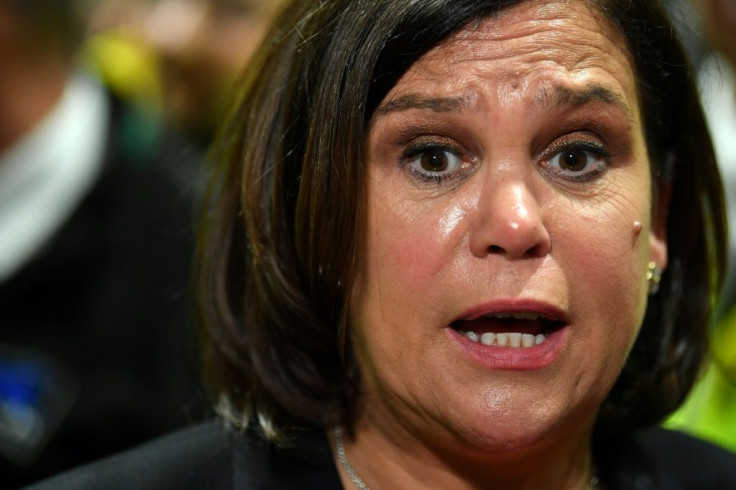
Even if Sinn Fein form an alliance with the 29 lawmakers of the four small left-wing parties, they would still need support from independents to reach the 80-seat threshold to form a government.
Ireland's president Michael D Higgins said Tuesday it would be "important to be positive" as negotiations began, telling the Irish Times he had "great confidence in the process we have".
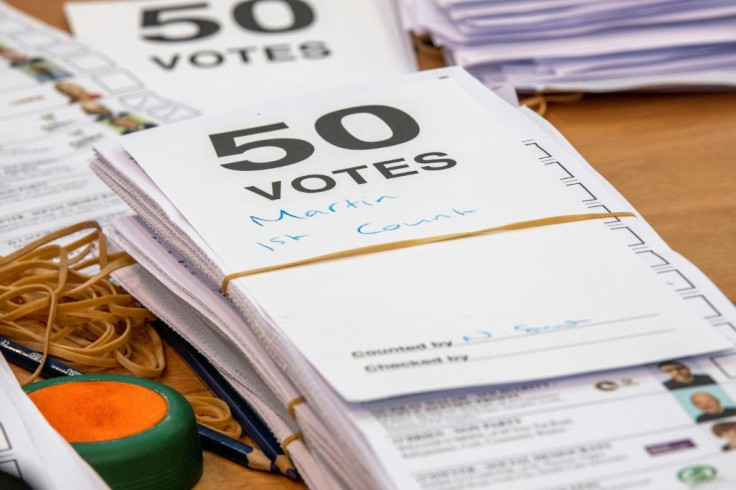
The surge in support for nationalist Sinn Fein, once regarded as the political wing of the IRA, broke the stranglehold of two-party politics in Ireland.
Its former leader Gerry Adams and other party representatives were even banned from the airwaves in the UK as violence raged over British rule in Northern Ireland over the three decades to 1998.
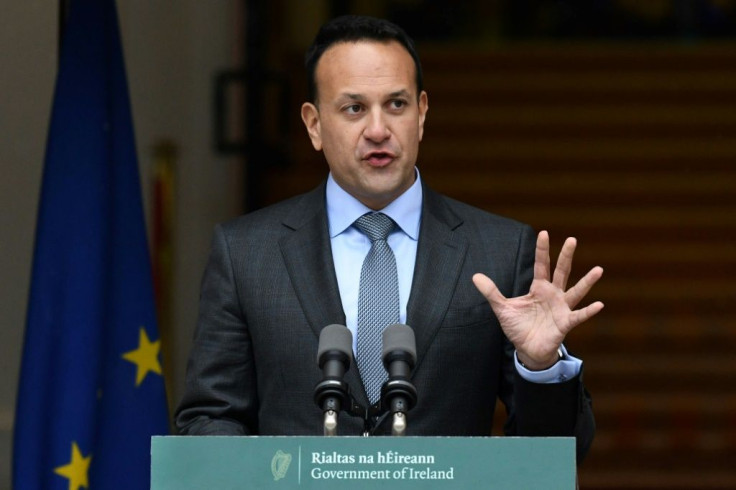
But with two decades of peace and new leader McDonald, Sinn Fein's left-wing policies on tackling crises in housing and health have found favour, especially among younger voters.
McDonald said the two main parties -- Fine Gael and Fianna Fail -- were "in a state of denial" and had not listened to the voice of the people on pressing domestic issues.
Coalition talks are expected to be protracted and difficult, all the more so as Fine Gael and Fianna Fail have both ruled out any deal with Sinn Fein because of its past associations with the IRA.
Adams has long denied allegations that he had a leadership role in the IRA, which waged a bloody campaign over UK-rule in Northern Ireland that saw more than 3,000 killed on all sides.
Sinn Fein's flagship policy of a united Ireland is likely to figure prominently in whatever role it plays in government. It wants to call a referendum on the issue within five years.
McDonald herself called on the European Union to back the party's position.
"I think the European Union needs to take a stand in respect of Ireland in the same way that it supported the reunification of Germany," she told BBC television on Monday night.
"In the same way that it (Brussels) has a position on Cyprus, for example, and a positive approach to the reunification of that country. I think Ireland is no different."
McDonald described the partition of Ireland in 1921 -- when six northern counties remained under British rule and the rest of the island became self-governing -- as a "disaster".
"Reunification, reconciliation and good relationships with our next-door neighbours is the way forward," she added.
Former Irish prime minister Bertie Ahern said a border poll was now "inevitable".
"No such circumstances exist," said Foster, who is also first minister of the devolved administration in Belfast.
She pointed to recent opinion polls indicating that a majority are not in favour of such a vote.
© Copyright AFP 2024. All rights reserved.





















